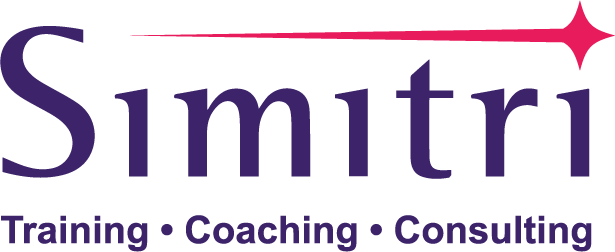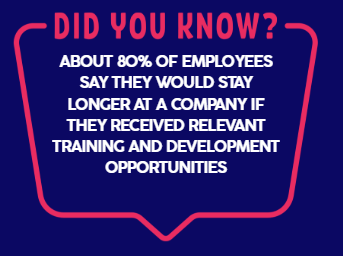“ “Skills have become the global currency of 21st-century economies.””
Until recently, we hired people based on job experience and formal qualifications. But now, with technology evolving so quickly and job responsibility constantly shifting, companies are starting to care more about candidates who have the skills that make them more agile and curious.
For those of us in HR and L&D, this isn’t just a shift. It’s a wake-up call. We’re being asked to rethink how we hire, how we train, and how we grow people. And for many organisations, this shift is already underway.
Why skills are taking centre stage
Let’s take a step back. Why are so many companies talking about skills-first strategies right now?
Here’s a quick look at what’s driving it:
By 2030, nearly half of all work will require different skills, with 170 million new roles emerging, many of them yet to exist, as technology and shifting business needs reshape the workplace (World Economic Forum, Future of Jobs Report 2025)
More than 60% of hiring managers say hiring for skills has helped reduce bias and bring in more diverse candidates (LinkedIn, 2024)
Companies that invest in skills-based development see higher performance and retention across teams (IBM, 2025)
Put simply, roles come and go. But skills last the test of time. Someone great at collaboration, communication, and decision-making can succeed in almost any role. These capabilities are what keep people adaptable, especially in fast-changing industries. And if people can master these important skills in today’s environment, they have a much higher chance of picking up the new skills of tomorrow—faster, more confidently, and with less friction. Foundational capabilities create a kind of learning momentum that carries people forward, no matter how the landscape shifts.
Rethinking Learning: From Job Roles to Capabilities
Role-based learning assumes that everyone in the same position needs the same development. But this no longer reflects the realities of today’s workplace. Capability-based learning takes a more personalised, dynamic approach. It focuses on the core behaviours and skills that drive performance in a wide range of roles and situations like:
Tailored development over one-size-fits-all training
Talent mobility across functions
More agile responses to shifting priorities
We are talking about the real-world skills that help people succeed no matter what their responsibilities are. The skills that are not tied to a single job or function, the skills that are transferable and essential during times of change, growth, and uncertainty. Focusing on these transferable skills helps future-proof the workforce, reduces the risk of becoming unemployable, and prepares people for opportunities that may not exist yet but are quickly emerging.
A global tech client recently shared that after shifting to a capability-based model, they identified significant gaps in decision-making skills across mid-level roles. By introducing a cross-functional collaboration mindset to help break down silos, within six months of targeted development, cross-functional collaboration scores rose by 28%, helping to remediate a number of long-standing issues.
And here’s a useful REMINDER → Skills-first doesn’t mean job roles are irrelevant. It means job roles are no longer the only lens for growth. The nuance is in balancing structure with individualisation.
How Capability-Based Learning Transforms Careers
Learning programs today are increasingly focused on building practical, people-centred skills that make a measurable difference in the workplace. Many organisations are investing in resilience and well-being programs that incorporate mindfulness, emotional intelligence, and stress management. These initiatives help employees manage change, reduce burnout, and strengthen collaboration across teams.
Communication and influence training has also become a cornerstone of capability-building. When employees develop stronger interpersonal skills, organisations see faster decision-making, improved alignment, and higher engagement.
Other critical capabilities like empathy, adaptability, and conflict resolution are developed through role plays, coaching, and scenario-based learning—equipping teams to lead through uncertainty.
One strong example of this approach is Simitri’s Personal Effectiveness Programmes, which focus on building resilience, adaptability, and critical thinking through interactive workshops, ongoing coaching, and real-world practice.
From our global work, one consistent theme we hear is this: “defining capabilities is the easy part. The real challenge for L&D is how to measure and sustain them in everyday behaviour.”
By building foundational people skills through flexible learning journeys, organisations create teams ready to grow and lead with confidence.
Technology’s Role in Enabling Skills-First Learning
One organisation leading the way is Mastercard. In 2022, they launched Unlocked, an internal talent marketplace powered by AI. It matches employees with learning opportunities and projects based on their skills and goals.
More than 90% of employees have joined. One in three users has made a career move through the platform. Learning becomes visible, development becomes accessible, and skills become currency.
Why AI makes this even more important
AI is accelerating this shift in a big way. It’s taking on repetitive tasks, giving people time to focus on work that requires creativity, empathy, and good judgment. But here’s the catch. People need those skills in order to succeed alongside AI.
In other words, the more we automate, the more human skills matter.
AI can also help L&D teams do their jobs better. It can personalise learning, nudging learners to practise at the right time, and identifying skill gaps across teams. But it can’t replace the nuance of human coaching or the trust built through authentic, face-to-face development.
The most effective learning strategies today combine the intelligence of AI with the empathy and insight of human facilitators. This combination creates learning journeys that are both adaptive and deeply personal, blending smart technology with meaningful human connection.
Platforms such as Degreed, Eightfold, and talent mobility solutions like Mastercard’s Unlocked illustrate how AI can enhance learning precision, enable targeted growth, and create more agile development pathways, all alongside the critical role of human-led experiences.
So, how can L&D teams start building a skills-first culture?
Here are three simple ways to get started:
1. Do a capability check.
Look at your top performers. What do they do really well? Is it building relationships? Handling pressure? Presenting ideas clearly? Start building your learning content around those real skills, not just job functions.
2. Make learning part of career growth, not a checklist.
Encourage employees to explore beyond their current roles. Create opportunities for people to take on projects, shadow leaders, or coach others. Show them that growth isn’t only upward. It can also be sideways or deepening in place.
3. Link learning to business outcomes.
When you roll out training, link it to real business goals. For example, if you’re teaching better communication, connect it to improved customer feedback or faster decision-making.
Or if your training focuses on problem-solving and decision-making, track metrics like reduced project cycle times, fewer escalations, or more efficient cross-functional collaboration. Demonstrating these links makes it clear that learning fuels both individual growth and business performance.
What’s next?
In September, we’ll be releasing our Annual Learning Trends Report for 2026. It’s packed with real insights, practical tips, and global research to help you stay ahead in your learning strategy.
We’ll be diving deeper into:
How the value of human skills is evolving
The impact of AI on learning strategies
Why demonstrating ROI is more essential than ever
It’s fresh, it’s practical, and it’s designed to give HR and L&D teams a clear path forward.
Want early access?
Register your interest now to be among the first to receive the report.
SUBSCRIBER EXCLUSIVE:
EXCLUSIVE
Subscribers get complimentary access to our exclusive Learning Trends Report Launch Webinar, a private event for Simitri’s valued clients and friends.
Let’s Talk
We’d love to hear your perspective. How are you approaching capability-building? What skills are mission-critical in your organisation?
Reach out to talk it through or to get a preview of the report. Because in a fast-changing world, skills are what keep people growing, adapting, and leading.
Ready to Reinforce?
At Simitri, we believe lasting learning doesn’t just happen in the room. It happens in the rhythm of real work. That’s why our programmes are designed with reinforcement in mind. With tools like SmartScroll™, we help learners reflect, apply, and grow long after the workshop ends.
Because in 2025, the question isn’t just what people learn, it’s what they remember and use.







